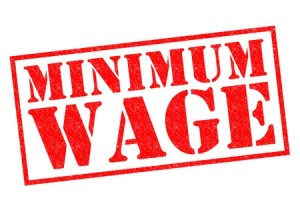
By Sadie McInnes
Anywhere between 30,000 and 200,000 people are homeless in Canada, with another 1.7 million unable to afford adequate, suitable shelter. Winnipeg in particular has a history of housing shortages and inner-city poverty. In 2015 it was estimated that on a given night in the city there were at least 1,400 people experiencing homelessness. Winnipeg is also home to the largest urban Indigenous population in Canada and poverty rates among the highest in the country.

First published in the Winnipeg Free Press Aug. 23, 2016
By Christina Maes Nino
The issue of development fees has made headlines again as the consultant hired to take on another study of growth financing in Winnipeg, Hemson Consulting Ltd., completed its second and last engagement session on August 18. The primary purpose of the engagement was to educate stakeholders on the method for calculating growth charges. Key stakeholders have been defined as primarily Winnipeg’s development industry. The reason for this was stated a number of times, by City representatives, Hemson staff, and participants themselves: developers will be the ones seeing and dealing with growth costs most directly.

First published as an editorial in the Winnipeg Free Press July 18, 2016
By Molly McCracken
Unless immediate action is taken, 2016 will be the first time in a generation that minimum wage workers will see their wages stagnate, which will result in fewer earnings for basics like food and shelter.
The 2016 budget failed to signal even an inflationary increase in the minimum wage. This means these earners will make $400 less in 2016/17 – the first minimum wage freeze in 16 years.
By Jess Klassen
Since late 2014, twenty-six families in Winnipeg’s inner city have been living in a new, supportive social and affordable housing complex called WestEnd Commons. The innovative development was retrofitted in the 100-year-old St. Matthew’s Anglican Church building. Church and community leaders worked for years to build the affordable family housing complex in Winnipeg’s low-income West End neighbourhood. In addition to reduced rents, WestEnd Commons has a vision to create community and increase social inclusion in this inner city neighbourhood. Full Report
WestEnd Commons hosts three components: a Neighbourhood Resource Centre, a number of independent faith communities and the twenty-six housing units. The Neighbourhood Resource Centre is a social enterprise that rents space to various community-based organizations providing essential services to people in the West End. Community members have long relied on the services and support provided by this welcoming community space, such as a food bank, drop-in, free computer and phone, sewing programs, artists’ circles, meeting and event space and a commercial kitchen. Seven communities worship within the walls of WestEnd Commons, including St. Matthew’s Anglican Church, Grain of Wheat Church-Community, Shiloh Apostolic, Emmanuel Mission and others. Finally, twenty-six units of social and affordable family housing have been erected within the walls of the church.
The idea for this ambitious project was conceived in a difficult time for the housing sector. Federal investments in housing have decreased by over 46 percent over the last twenty-five years, while the Canadian population has grown by almost 30 percent (Gaetz et al., 2014), meaning fewer affordable housing options remain for a growing number of Canadians. Locally, Manitoba Housing Renewal Corporation (MHRC) spent years acting as property manager of a deteriorating public housing stock with little capacity or intention to increase the supply of social and affordable housing, although that has changed in the past decade. Despite these odds, St. Matthews Non-Profit Housing Inc. was formed by a driven group of church and community leaders in 2009, with WestEnd Commons as its first build.
This report explores the interplay between low-cost housing with supports, and social and economic inclusion in society, through interviews with twenty-one residents. It is evident that living in WestEnd Commons has increased residents’ economic inclusion through the provision of subsidized rents, and has increased their social inclusion through supportive policies and programming.
TransCanada Pipeline’s Energy East pipeline (EE), if approved, will run from Hardisty Alberta to St. John, New Brunswick and will carry bitumen from Alberta’s Tar Sands to refineries in Quebec and New Brunswick.
A new Canadian Centre for Policy Alternatives MB report examines the purported economic benefits for Manitoba as presented in three different impact studies prepared by industry experts (Conference Board of Canada; Deloitte; and the Canadian Energy Research Institute). Benefits include the effect on GDP, the projected increase in tax revenue, as well as job creation numbers. The report raises concerns with these studies.
What the Three Studies Claim
A version of this article was first published in the Winnipeg Free Press June 8, 2016.
By Pete Hudson
Budget 2016 pledges $160 million to create 1,200 new Personal Home Care (PCH) spaces. It is to be hoped that this laudable move will be implemented based on the evidence. Regrettably this is a practice woefully lacking.
There is, for example, a consensus of experts in the field that long term care is a continuum. The Manitoba Centre for Health Policy (MCHP) study reported in the Free Press yesterday makes exactly that case. It found that an expanded Supportive Housing Program could meet some of the predicted increased need, thereby reducing the need for more PCH beds. An identical argument was made in a 2012 MCHP study which included the Home Care Program The combination of the two programs has already reduced the admission rate to PCHs. In short, the new government should avoid favouring one part of the system at the expense of others.
Don’t let the name of Manitoba’s latest budget “Correcting the Course” fool you: this budget stays the course, at least in the immediate term. It is a status quo budget that continues with many of the initiatives of the previous government and does little new to address income inequality and poverty issues. If one is to glean any information as to how they plan to really change course, one needs to unpack some of the messaging incubating in the background information. We’ll get to that in a moment, but first let’s examine what hasn’t changed much, and why.




Follow us!